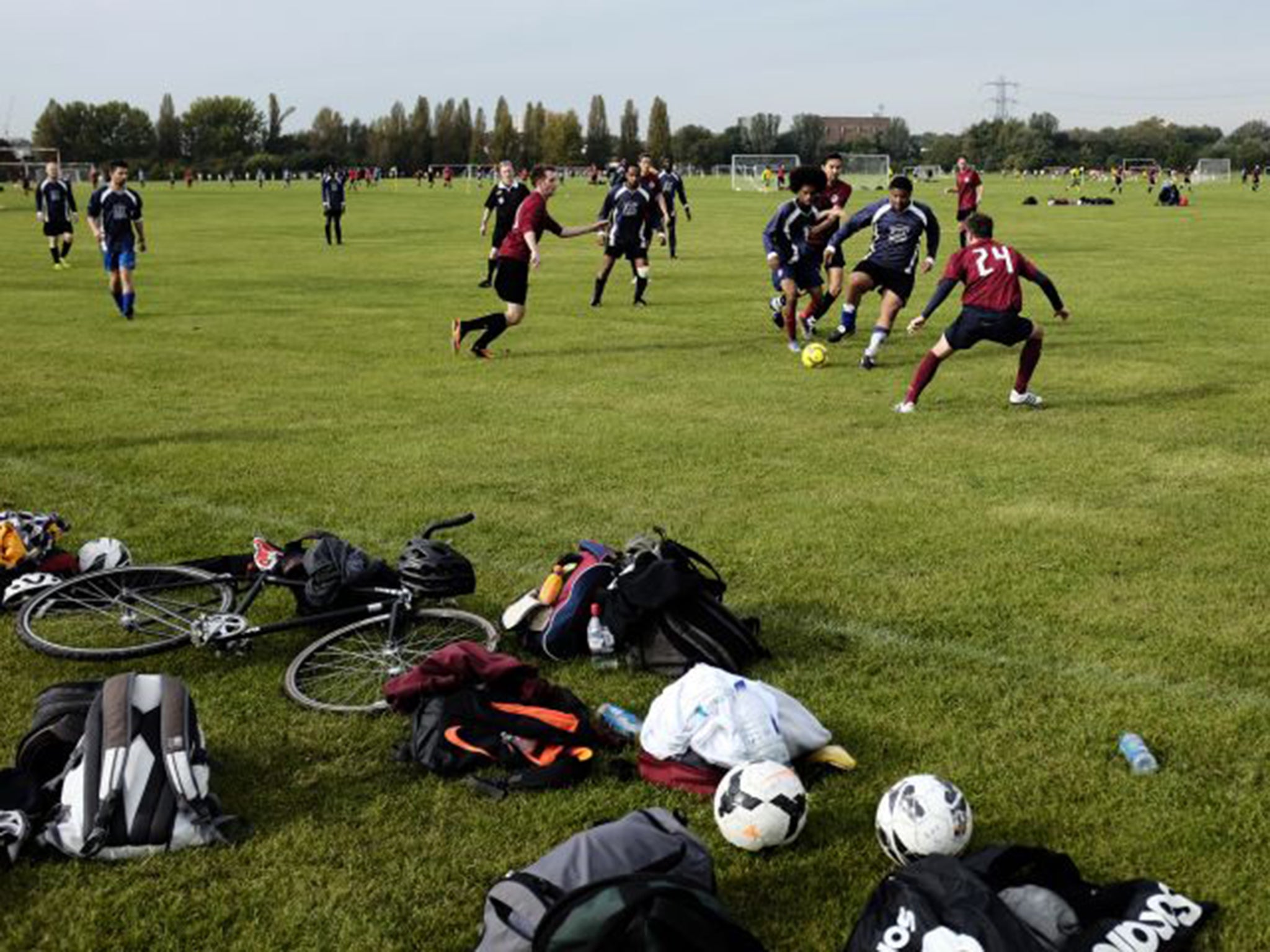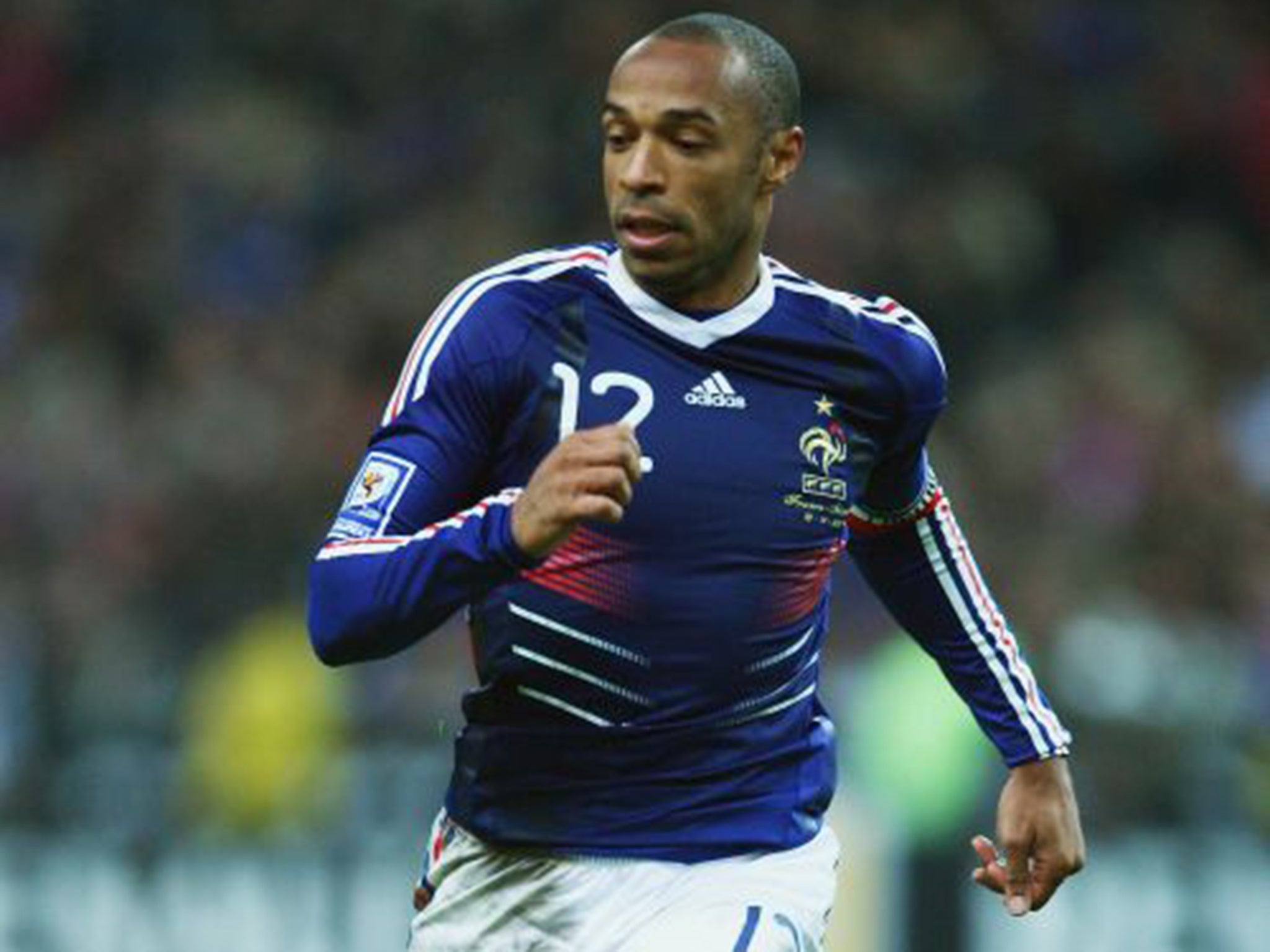Football's ugliness is integral to the beautiful game
Even the most obsessive football fans know that the lingering romantic idealism of the Corinthians cannot be separated from the stinking Fifa trough

Two weeks ago, standing on the touch-line of a football pitch near Dereham in Norfolk – under-sized, long unmown and requiring bits of wood to be removed from its surface before the game began – I experienced what can only be described as a divine presentiment.
The circumstances were so dramatic that they could practically have been robbed wholesale from The Liveliest Term at Templeton or any one of those ancient volumes of boys’ school stories that my father used to read to me as a child: the final minute of the final game of the Norfolk Junior Combination Under 15 B league’s 2014-15 season, with only outright victory enough to guarantee Cringleford FC the title, and the score standing at 4-4.
Hope, dormant during the period when Cringleford were 0-3 down, renascent when we were leading 4-3 and dashed when the opposition equalised, suddenly flared anew. “My son will score,” I heard a small voice intoning in my head, and lo and behold, 20 seconds later, that is exactly what he did. Twice, for good measure. Half a minute later the Cringleford goalkeeper dropped the ball in the back of the net by mistake, but somehow the lads – football teams are always “the lads”, whether composed of eight-year-olds or John Terry and a cadre of fellow millionaires – held on.
After which, tired yet triumphant, we returned home to read the latest rubbish about Sepp Blatter and why £100,000 a week didn’t seem enough to ensure Liverpool’s Raheem Sterling fulfills his contractual obligations.
One of the queerer aspects of association football is that both its horrors and its incidental satisfactions should be built out of what is effectively the same material: the 22 players coursing back and forth over the green sward while the crowd bays its approbation or ventilates its disgust. For even at its upper, corporate level where Fifa snouts crowd out the trough; where an obvious piece of cheating – Thierry Henry’s handball against Ireland – can be overlooked with the help of a substantial cheque; and at least one Latin American international XI seems to have been picked by its sponsors, football is essentially a romantic activity, built on dream, myth and idyll. At the same time – and this in no way undercutting the romance – it’s a moral undertaking, capable of dishing out terrific lessons in practical ethics, a tense and unyielding figurative world in which Davids are still able to see off Goliaths, and despite periodic threats to its integrity, the old Corinthian ideal of “sportsmanship” is still capable of making its presence felt.
But it is also an activity which most old-style football fans find themselves approaching with nostrils firmly pinched between finger and thumb, such is the stink that usually emanates from even its humbler backwaters. No modern sport, it might be said, attracts quite such mercenary guile from the titans who administer and play it, such stupidity and mean-spiritedness from the spectators who watch it or such dogged inarticulacy from the pundits who comment on it.

Even to watch my own local club, Norwich City, to whose ground I was first taken at the age of six weeks, is to wonder just exactly why every opposition player who collapses in a heap is automatically presumed to be feigning injury (“Get up you cheating ----!”) and if the middle-aged men screaming obscenities at the referee ever pause to wonder what effect this might be having on the children they bring with them. Why put up with it?
Why sit listening to the high-pitched infant voices chanting “You’re shiiiiit!” every time the opposing goalie shapes up to kick the ball, or watching Mr Murdoch’s cameramen skulking up and down the touch-line, or hearing about the latest casualties from the Qatar stadium projects, or reading about the latest manifestly unsuitable foreign tycoon buying his way into the Premier League? (For the record, I happened to be watching a Norwich game with the then Home Secretary Charles Clarke on behalf of one of the football magazines in the week that Roman Abramovich put in a bid for Chelsea. And what did Tony Blair’s right hand man think of this? Mr Clarke was not prepared to be quoted, but what he allowed himself to say off the record was: “It stinks.”)
Of course it stinks. Blatter stinks. Sterling’s agent stinks. The former Manchester United captain Roy Keane, who confessed to intentionally injuring an opponent stinks. The former Nottingham Forest and Derby manager and legendary bung-taker Brian Clough, now memorialised by a road linking these two East Midlands cities, stank to high heaven.
But football fans – even one like me, brought up on tales of the prelapsarian, Corinthian dawn when that amateur team believed so strongly in fair play as to remove one of their own players if the opposition were down to 10 men – continue to plonk down their money for season tickets and Sky subscriptions, exulting in the routines of modern football while continuing to ignore the deeply unsavoury implications. Why exactly is this?
My own answer would be that football, as well as being a romantic and a moral activity spiced up with lashings of brute realism (there are interesting parallels with sex), manages to combine moments of intense visual spectacle – the 60-yard pass that bisects 10 or 15 players, the delicately flighted shot – with an almost unending narrative, capable of the most credulity-defying shifts and rearrangements. It is also, in a world increasingly prone to fragmentation, an enviable source of solidarity.
The day after Cringleford Under 15s scooped the Norfolk Junior Combination, I was one of 40,000 Norwich fans – about 4 per cent of the population of Norfolk, it was calculated – who sped down the A11 to see the lads trounce Middlesbrough in the Championship play-off final: a serpentine yellow-and-green convoy waved on by well-wishers, and as convincing a demonstration of regional identity as you are likely to see outside Mebyon Kernow’s annual conference.
All this, mysteriously, is usually sufficient defence against the regular overturning of football’s myths and legends – the discovery, let us say, that Bobby Moore, the great hero of my childhood, liked hanging out with mobsters and ended his days working on the Sunday Sport – and the realisation that football players are, in the end, just like anyone else. They grow old and have lives beyond the sports field. Taken to a game at Fulham’s Craven Cottage ground not long ago, and passing the doors of the George Cohen restaurant, I noticed a frail-looking elderly man standing just inside – George himself, I instantly divined, full-back in the 1966 World Cup triumph, now in his 76th year. As sightings go it was almost as distressing as the time in 1973 when Geoff Hurst declined the opportunity to give me his autograph.
Back in the world of contemporary football, it seems pretty clear that the Fifa genie is out of its bottle and that, to mix the mythological metaphors a bit, an outsize Augean stable is ripe for clearance. The menus served at Blatter’s executive dinners will doubtless be shown to have harboured boiled unicorn and phoenix casserole. Meanwhile, another half-dozen videos of vacationing Premiership footballers behaving badly will have surfaced on the internet and Sterling’s agent will have fixed him up to play for Mars at £5m a week.
The fan will not exactly ignore these revelations, but only a superhuman exercise in Orwellian doublethink can square them with the consolations of the beautiful game. Blatter’s follies; Murdoch’s billions; Cohen greeting the fans in the Fulham lounge; those 40,000 Norwich fans on the road to Wembley; Cringleford Under 15s scooping the pot. Whether we like it or not, they are all of a piece, as interdependent as any finely finessed product of the mosaic-maker’s art.

Join our commenting forum
Join thought-provoking conversations, follow other Independent readers and see their replies